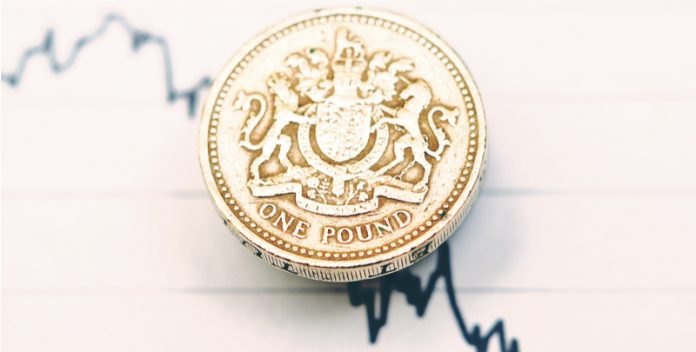The pound finished the previous week 0.2% lower versus the euro. Brexit concerns overshadowed a more aggressive sounding Bank of England (BoE), which said that it could raise interest rates sooner and faster than initially planned. The pound euro exchange rate traded at a high of €1.1453 following the BoE announcement before dropping to close the week at €1.1310 for the pound.
| What do these figures mean? |
|---|
|
When measuring the value of a pair of currencies, one set equals 1 unit and the other shows the current equivalent. As the market moves, the amount will vary from minute to minute. For example, it could be written: 1 GBP = 1.13990 EUR Here, £1 is equivalent to approximately €1.14. This specifically measures the pound’s worth against the euro. If the euro amount increases in this pairing, it’s positive for the pound. Or, if you were looking at it the other way around: 1 EUR = 0.87271 GBP In this example, €1 is equivalent to approximately £0.87. This measures the euro’s worth versus the British pound. If the sterling number gets larger, it’s good news for the euro. |
The pound lost value at the end of last week after EU chief negotiator Michel Barnier cast doubts over the post Brexit transition period. Barnier said that vast differences still existed between the EU and UK visions of the transition, which if not overcome could prevent the transition period happening at all. No transition period would mean a hard Brexit for the UK, which would be the worst-case scenario for the UK economy and the pound.
| Why is a “soft” Brexit better for sterling than a “hard” Brexit? |
|---|
| A soft Brexit implies anything less than UK’s complete withdrawal from the EU. For example, it could mean the UK retains some form of membership to the European Union single market in exchange for some free movement of people, i.e. immigration. This is considered more positive than a “hard” Brexit, which is a full severance from the EU. The reason “soft” is considered more pound-friendly is because the economic impact would be lower. If there is less negative impact on the economy, foreign investors will continue to invest in the UK. As investment requires local currency, this increased demand for the pound then boosts its value. |
Brexit is likely to remain the central focus for pound traders today, given the quiet UK economic calendar and the unveiling of the UK post Brexit relationship. Over the coming days UK Prime Minister Theresa May and some senior Brexit cabinet members are expected to give key speeches outlining their vision of future relationship between UK and the EU. These speeches come as Theresa May is under increasing pressure from the Brexit hardliners in the UK Conservative party who wish to see a clean break between the UK and the EU.
A Quiet Start To The Week For The Euro
The euro traded within a narrow range at the end of last week, thanks to a shortage of data to drive the common currency. The eurozone economic calendar is quiet once again at the beginning of this week, however by Wednesday volatility could return with inflation data due. Any signs that the blocs sluggish inflation is picking up could boost the euro.
| How does strong jobs data boost the currency? |
|---|
| It works like this, when there is low unemployment and high job creation, the demand for workers increases. As demand for workers goes up, wages for those workers also go up. Which means the workers are now taking home more money to spend on cars, houses or in the shops. As a result, demand for goods and services also increase, pushing the prices of the good and services higher. That’s also known as inflation. When inflation moves higher, central banks are more likely to raise interest rates, which then pushes the worth of the currency higher. |
Political developments in Germany could catch the eye of investors on Monday. German Chancellor Angela Merkel has faced a backlash after last week’s coalition agreement with the Social Democratic party (SPD). The SPD used leverage in coalition talks to take the Finance Ministry from Merkel’s Christian Democrats. This decision has been unpopular with euro traders who fear that economic policies the SPD could put forward could have a negative impact on the eurozone economy.
|
This article was initially published on TransferWise.com from the same author. The content at Currency Live is the sole opinion of the authors and in no way reflects the views of TransferWise Inc. |





